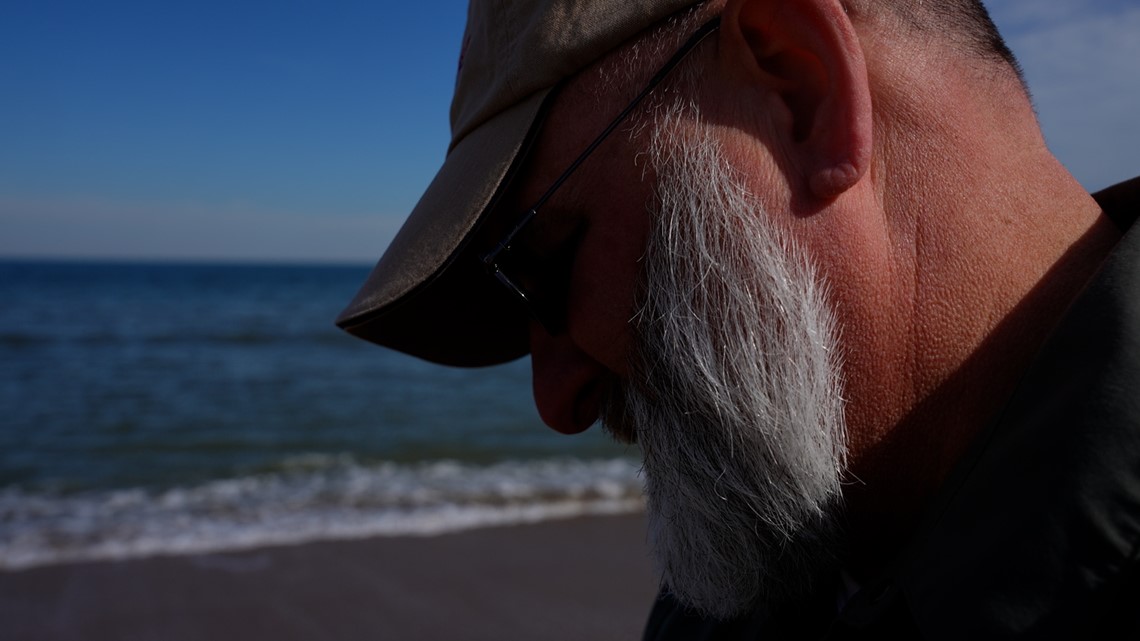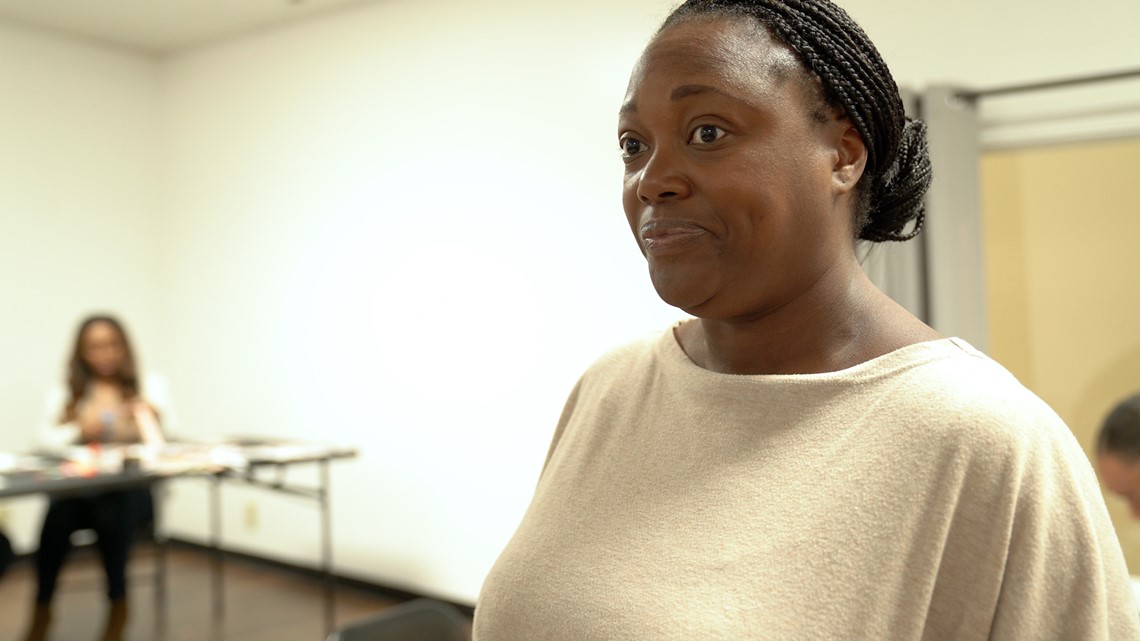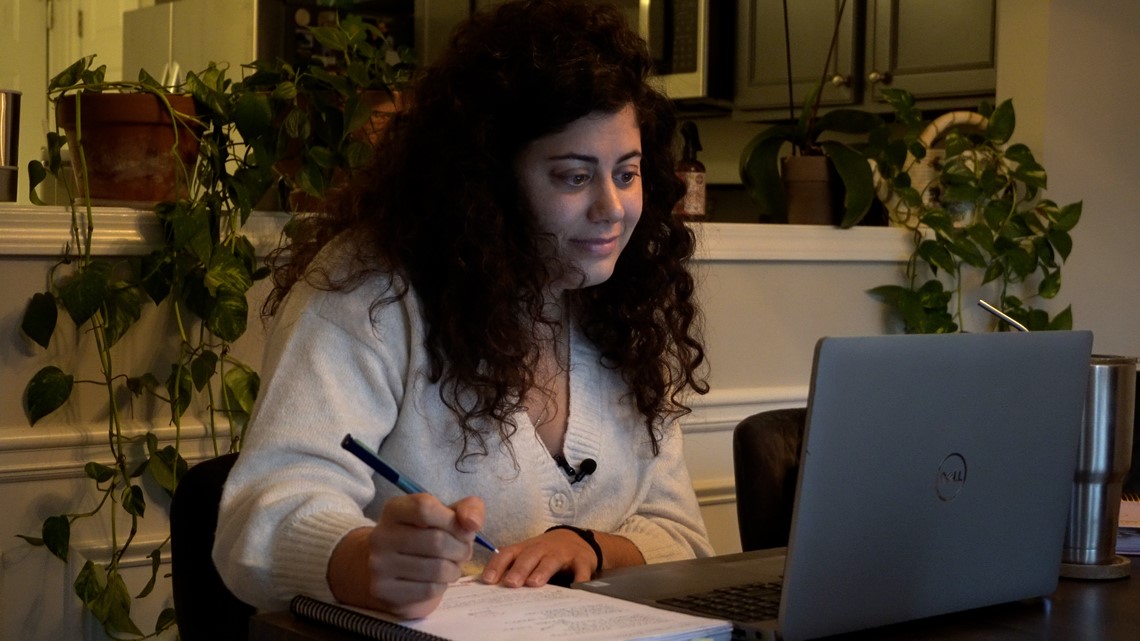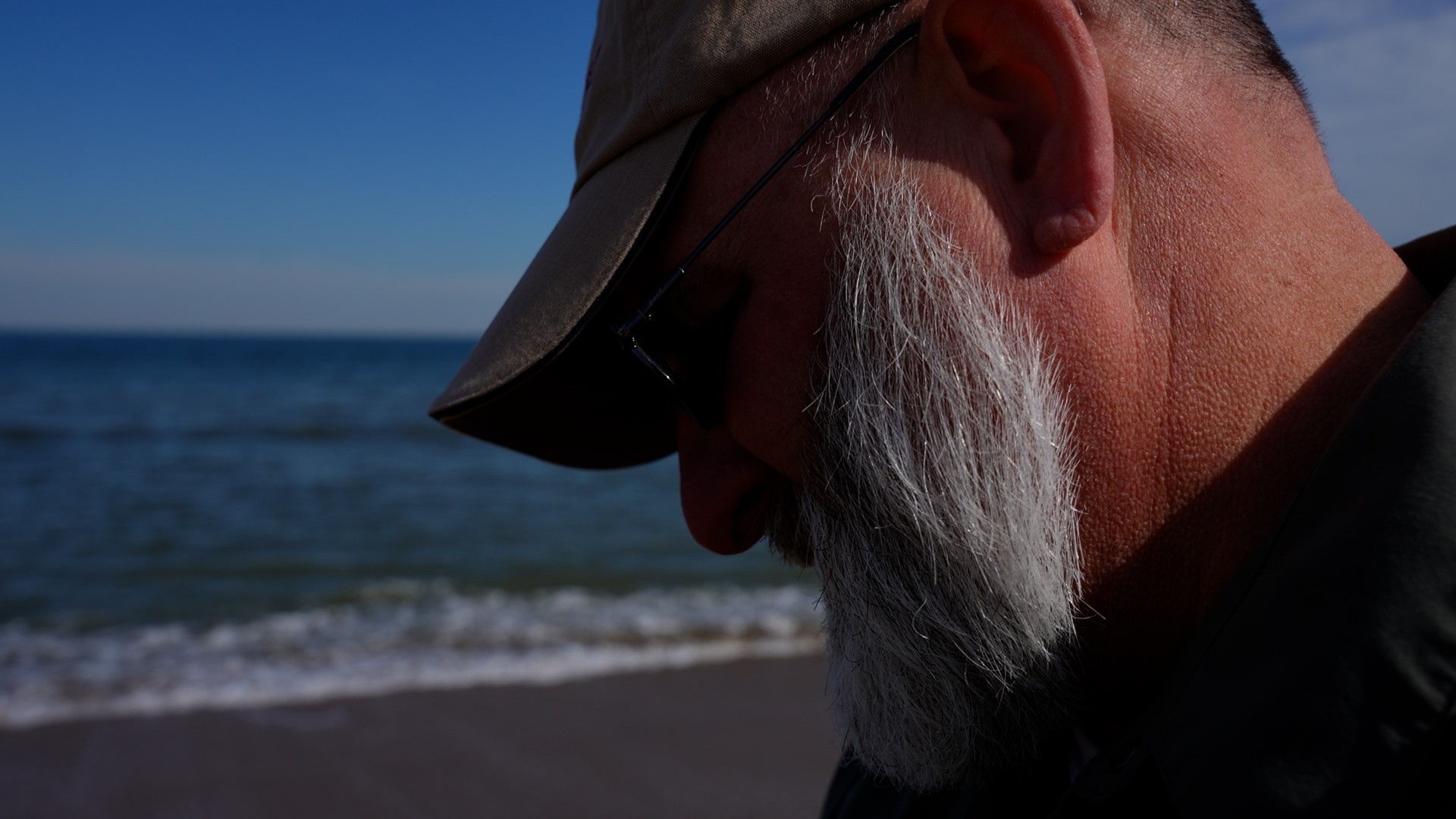ATLANTA — Joseph Blackwell often reminisces about the good times, the sound of military jets zooming by, a reminder of life before the darkness.
“I was very happy, jovial center of attention, and I liked being around all types of people, and I wanted to go and interact with people,” he explained.
Blackwell spent 24 years in the U.S. Navy before medical complications caused his career to come to a grinding halt.
Shortly after, Blackwell and his family started to notice a “change in personality."
“I started to social distance. I wasn't as happy as I was. I wouldn't get up in the morning ready to conquer the world,” the former Navy command master chief said.
Blackwell has since been diagnosed with PTSD, intermittent explosive disorder, general anxiety and major depression.


For many, anxiety is a crippling and debilitating mental health illness. It’s a condition that nearly 40 million adults battle in U.S., according to the Anxiety & Depression Association of America.
“Everyone experiences anxiety. We are animals. We are hardwired to experience anxiety. It often motivates us to survive in a dangerous situation often by fleeing, freezing, or fighting. We are now left with the vestiges of that system. It’s an alarm system,” explained Dr. Barbara Rothbaum, professor in psychiatry at Emory University School of Medicine.
Jewell Gooding, a mental health advocate and executive director for the Atlanta-based Silence the Shame, has shared some of those same struggles with anxiety throughout her life. Through her experiences, she has found that accurately diagnosing and labeling it as a mental health illness can lead to positives, like normalizing a conversation in a topic that often carries stigma.
"For me, it was welcoming. Nobody wants to be labeled, but I don't label myself as generalized anxiety disorder. It's just a diagnosis that I have. For me, it's recognizing there is a medical condition and that there are things that I can do to better support myself, so that I can live a fuller and healthier life," she said.
Gooding was diagnosed with generalized anxiety disorder in her early 20s. Like most children, her childhood is full of memories of choir and spelling bee. But, for her, those memories carry a burden.
“My mom, trying to be supportive in every way that she would, she pushed me into those positions so that it almost forced me to have to be more social. She just wanted me to stop being shy. In my mind, it's like you're creating, inciting panic in me," Gooding recalled.
“I didn't have any understanding around it. For me, it was just my personality. It's just who I was as a character and as a person. As I grew, I recognize, of course, that it's a little bit different than how other people may respond, particularly either in social situations or just kind of given just general life,” reminisced Gooding.


According to the Anxiety and Depression Association of America, anxiety the most common mental illness in the country.
"Anxiety has a lot to do with worry about the future, worry about what comes next," explained Dr. Jessi Gold, an assistant professor of psychiatry at Washington University in St. Louis School of Medicine.
Recently, a federal health task force drafted guidance recommending those under 65 be screened for anxiety. It is currently undergoing review by a panel of medical experts before publishing final guidance.
For many, a diagnosis could’ve been life changing at an earlier stage of life.
“As a child, I was described as shy or different descriptions, but anxiety was never even considered. Only within the last few years have I really come to know that I have anxiety. I had no idea,” Rachel Abraham, a business consultant and yoga teacher said.
All together, there are five major types of anxiety disorders:
- Generalized Anxiety Disorder
- Obsessive-Compulsive Disorder
- Panic Disorder
- PTSD
- Social Phobia
Mental health experts are encouraged by the new guidance but are also expressing some skepticism, citing stretched resources.
“If we screen for it, then we need to know what to do with people afterwards. And I think as it stands, our current mental health system has a lot of difficulty knowing what to do with someone to be able to treat them because we don't have enough providers. And so, I worry a bit about increasing screening and then not being able to help people right away," Gold added.
For Abraham, it's been a journey that she feels is still evolving.
“I've tried to cope with it behind closed doors. One of the biggest steps I've taken in healing and effectively managing my anxiety is the acknowledgment and the acceptance that it's there and that it's a part of who I am,” she said.


Nearly 10 million adults report severe symptoms of anxiety and depressive disorder, according to the Kaiser Family Foundation. However, 33% of them are not in treatment.
“A lot of people will say I’m strong, I can handle it. They’re white knuckling it through what they’re doing. It doesn’t have to be that hard. Life is hard anyway,” Rothbaum said.
For people like Blackwell, the support of his family means he can continue his path to mental and physical wellness.
“When I got the diagnosis of PTSD, intermittent explosive disorder, general anxiety and major depression. I felt like a second-rate human,” he said.
His mental health diagnosis came in the heels of a series of health complications he believes are likely from his responsibilities as a U.S. Navy diver for more than 20 years. They left him with a feeding tube, a pacemaker and medical port in his chest.
“It took me several days and the support of my wife and my kids to say, 'OK, this is where we're at,' and for any for us to get any better, you have to figure out where you're at. Take a deep breath and take your first step," Blackwell said.

